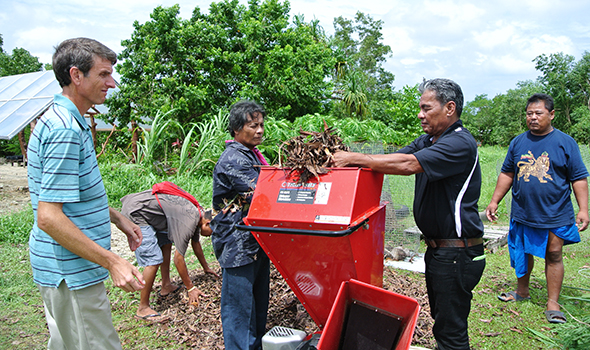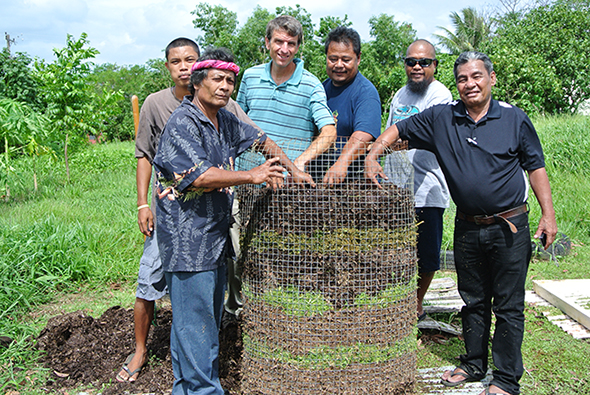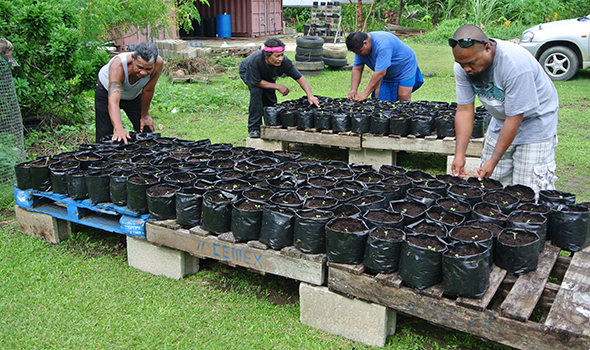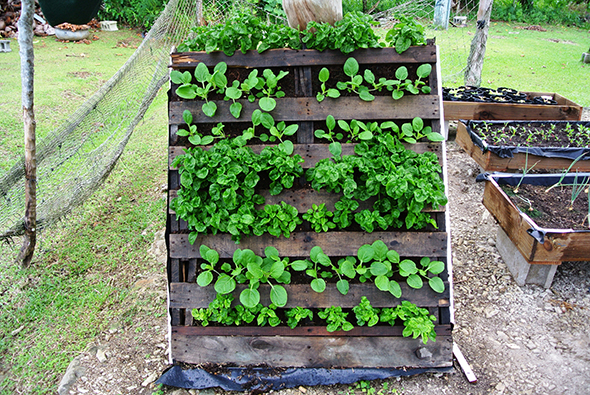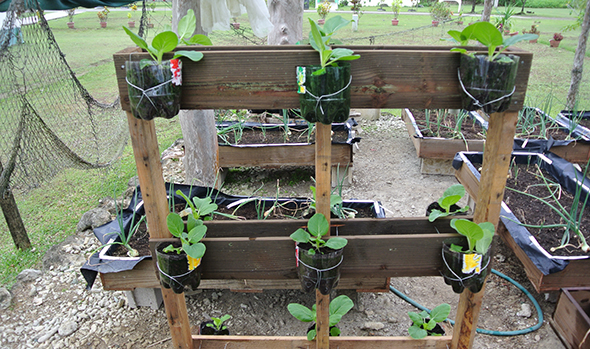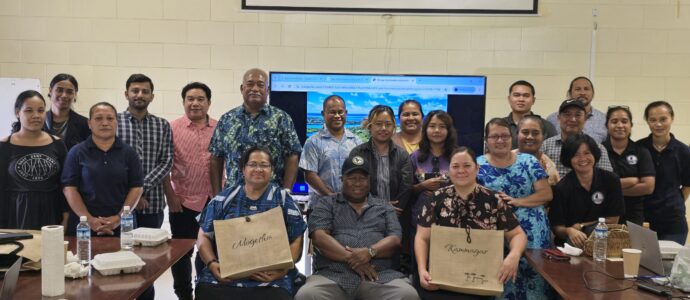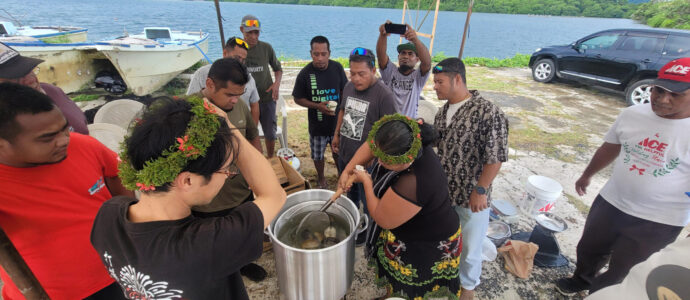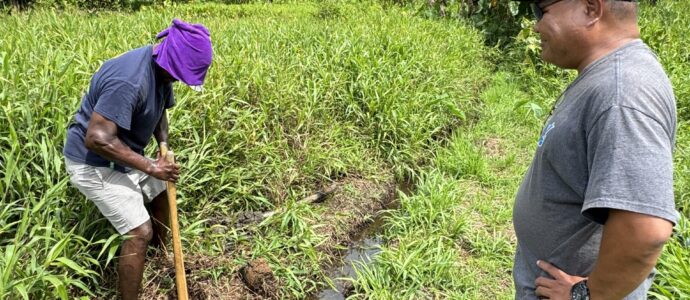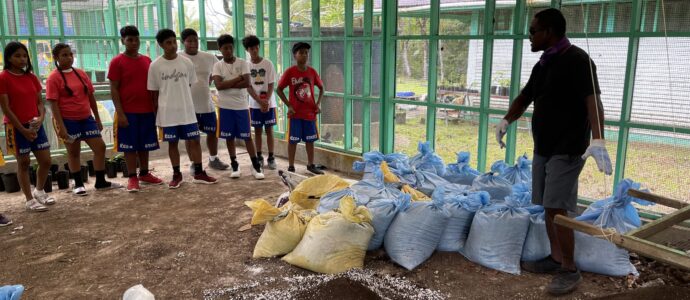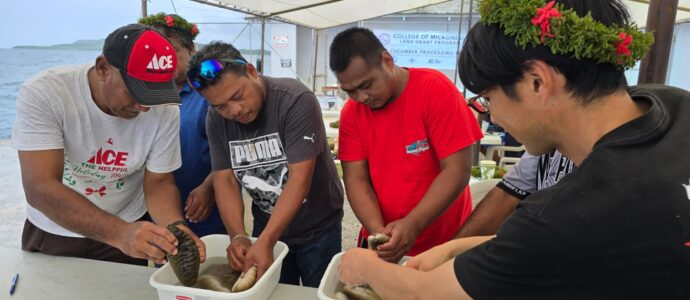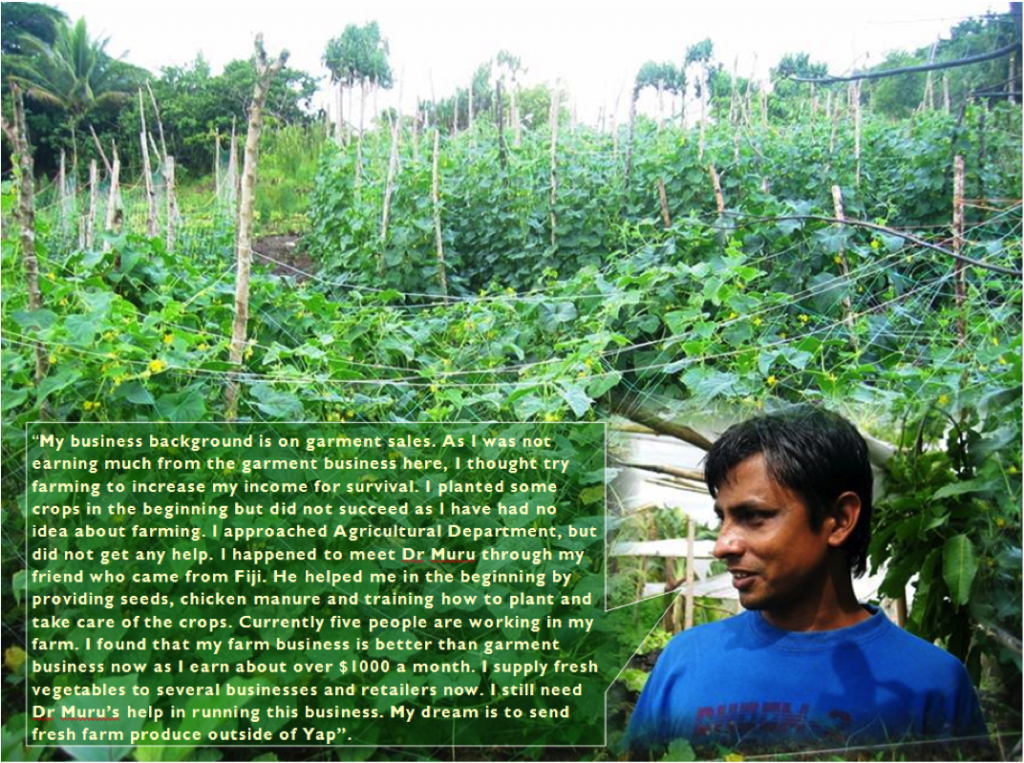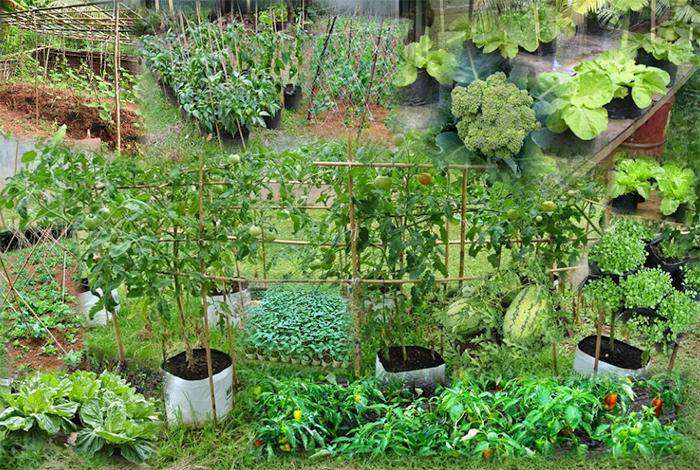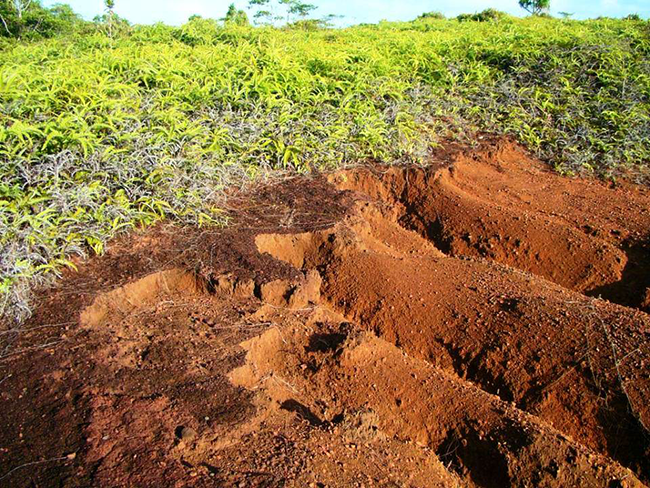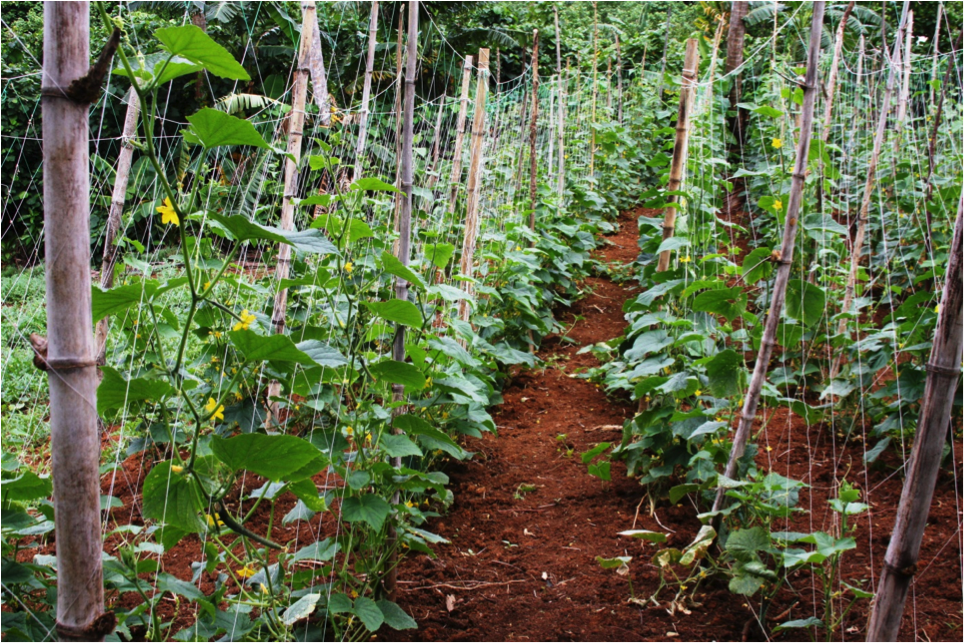YAP, FSM. Dr. Murukesan Krishnapillai, Researcher/Extension Specialist, Yap Agricultural Experiment Station
Densely populated urban settlements in places like Pohnpei, Majuro and Kwajalein resulting from constant flow of people from rural outer islands result in extensive youth unemployment and associated social problems. Population density of this magnitude, when associated with overcrowding, lack of enough space or quality soil for field-based cultivation often entails health and social challenges of varying severity. The influx and consumption of less nutritious imported food have induced prevalent health problems such as diabetes, hypertension, obesity, gout and a high incidence of malnutrition among children.
Urban agriculture is a method of transforming underutilized or neglected space into a resource providing opportunities for social interaction, greater community cohesion and self-sufficiency, and engagement of people in underserved neighborhoods. It connects people to opportunity so that they move from stagnant, difficult conditions to vibrant and productive lifestyles. It offers a pathway out of poverty. It has low start-up costs, short production cycles, and high yields per unit of time and unit of area and water. Value of leafy green vegetables to combat nutrient deficiency is irreplaceable and irrefutable. The urban agriculture has also potential for primary or supplemental income.
With this in mind, a multi-site extension program has begun to establish urban vegetable demonstration gardens in Pohnpei and Majuro for education and training. As part of this, a three-day training workshop on urban vegetable gardening was recently completed at Yap CRE. Extension staff from the College of Marshall Islands Land Grant Program, Pohnpei CES, Yap CRE and Yap SDA School attended this training workshop. The objectives of this training program were to: i) illustrate soil profile and their significance in urban gardening, ii) describe the important steps in urban vegetable gardening, and iii) provide hands-on training on urban garden designs and construction of various growers suitable for urban gardening. Following a specially designed extension program based on lecture cum hands-on activities and supported by various extension publications, participants were engaged in topics such as soil characteristics, quick composting methods, growing media preparation, urban garden designs, construction of various types of plant growers, nutrient management, etc. As part of the training, participants built some unique vertical growers and filled with locally prepared media and transplanted some seedlings. Observations, discussions and pre- and post-tests were conducted to evaluate this training activity.
